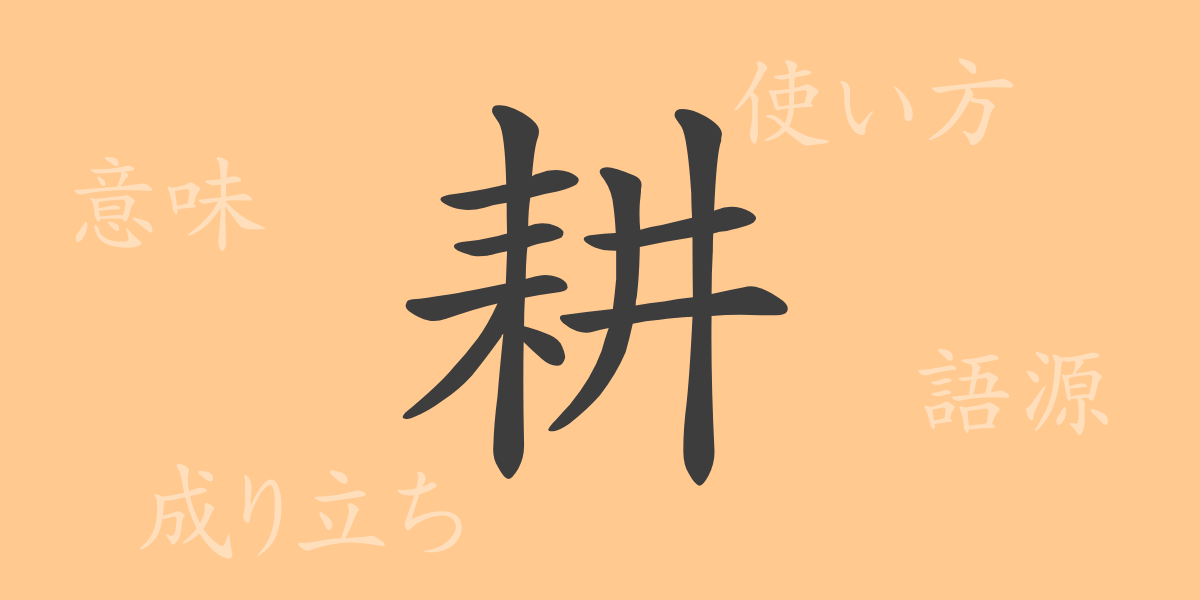The kanji deeply rooted in Japanese culture are enriched with long histories and profound meanings. The kanji “耕(こう)” is no exception. In this article, we will delve into the history and meaning of “耕(こう)” and its significance in the lives of Japanese people. In an agriculture-rich country like Japan, “耕(こう)” holds value beyond being just a character. Let’s explore the world of this common kanji.
Origin of 耕(こう)
The kanji “耕(こう)” originates from ancient China, composed of “耒(らい)” (a radical meaning plow) and “共(きょう)” (meaning together). This combination conveys the meaning of “plowing the land together with a plow.” This character symbolizes the act of tilling and farming land, reflecting its importance in the development of agricultural culture. The character “耕(こう)” has historically been significant in representing the act of cultivating land, highlighting its importance in an agriculture-based society.
Meaning and Usage of 耕(こう)
The kanji “耕(こう)” means to till the land, i.e., to cultivate farmland. It can also be used metaphorically. For example, challenging a new field can be expressed as “耕す(たがやす) new land.” Thus, “耕(こう)” is used both literally and figuratively to imply starting or pioneering something new.
Readings, Stroke Count, and Radical of 耕(こう)
As a common kanji in Japanese, “耕(こう)” is frequently seen in daily life.
- Readings: On-yomi (Chinese reading) is “コウ(こう),” kun-yomi (Japanese reading) is “たがや.す(tagayasu)”
- Stroke count: 10 strokes
- Radical: 耒(らい) (plow radical)
Idioms, Phrases, and Proverbs Using 耕(こう)
Here are some idioms, phrases, and proverbs that include “耕(こう)”:
- 耕作(こうさく): The act of tilling the land and cultivating crops.
- 耕地(こうち): Land that is cultivated for farming.
- 耕読(こうどく): Studying diligently during the agricultural off-season.
- 耕耘(こううん): The act of tilling the land and meticulously cultivating crops.
- “耕すれども種をまかず”: A proverb meaning that effort is made, but without taking the necessary steps to utilize it, no results are achieved.
Conclusion on 耕(こう)
The kanji “耕(こう)” represents crucial concepts in an agriculture-based society, closely tied to everyday life. It has evolved from meaning simply to till the land to encompass the broader sense of pioneering new areas. As a common kanji in Japanese, its readings, stroke count, and radical are well integrated into daily life, and its spirit is carried on through idioms and proverbs. Through this article, we hope you have gained an understanding of the deep meaning of “耕(こう)” and its integration into the lives of Japanese people.

























